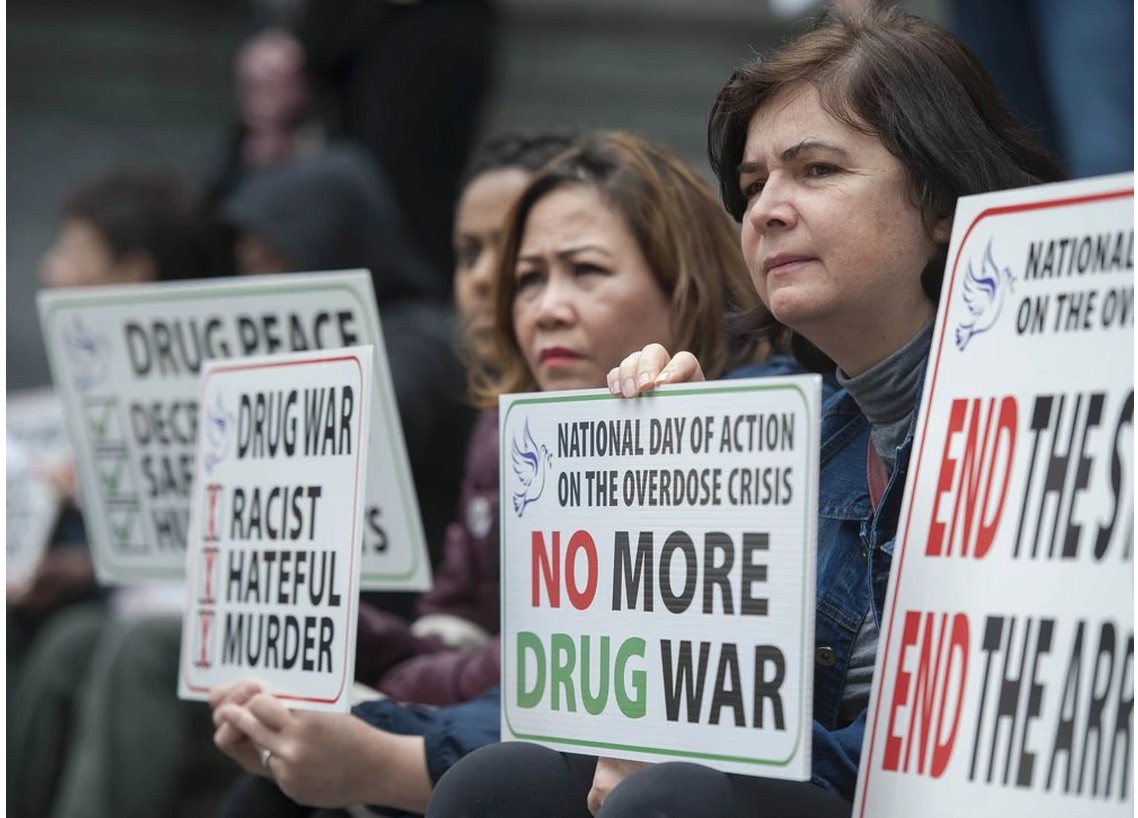The criminalization of people who use drugs creates violence, destroys communities and ruins people’s lives, often for good. Criminalization puts the responsibility and blame for drug use firmly on the backs of individuals most at-risk.
Dr. Mark Tyndall is a professor of public health at the University of B.C. Mark was formerly the deputy provincial health officer and director of the B.C. Centre for Disease Control. And he’s family.
Drug-Overdose Deaths
This has created an underworld of people dependent on drugs who have been pushed to the margins of society and are forced to exist under precarious living conditions. At the extreme, we have people spending their days hustling for drugs, scrounging for food, searching for shelter and, most of all, avoiding the police. At the root of this human suffering and chaos is criminalization.
The current epidemic of drug-overdose deaths is a tragic but predictable outcome of this failed strategy.
Criminalization strips us of our empathy for those who need it most. When people living on the street are viewed as drug-users, it’s easy to be dismissive. People who are most in need of our help and resources are labelled as criminals. We use derogatory and dehumanizing descriptions like junkie and crackheads and dope fiends that lay blame on people. Criminalization gives society permission to overlook the racism, mental illness and the tragic life events that people have endured. This is a vicious cycle for people, as many use drugs to numb the pain that they’re feeling.
Trauma on Trauma
Criminal punishment reinforces the powerlessness, hopelessness and lack of self-worth felt by many people who are using drugs. In fact, the trauma associated with arrests and involvement in the criminal justice system mirror the trauma and violence that may have led to drug use in the first place. This is the antithesis to the self-worth, personal agency and hope for the future that is critical to a person’s recovery. Not only is the endless cycle of repeated incarceration disruptive to people’s lives, a permanent criminal record can lock people into situations where they see no future other than drugs.
Decriminalization of simple drug possession is a critical first step and a hopeful signal that we are willing to prioritize support and engagement over punishment and exclusion.
A Long way To Go
But there is a long way to go to address the damage that has been inflicted on our most vulnerable citizens by decades of unchallenged and radical drug policies. While decriminalization of drug possession may not be a “silver-bullet,” pretty much everything else depends on it.
My opinion has changed over the last 40 years of ministry. I am convinced that using drugs is a choice. Addiction is not a choice. Many adults I know who were traumatized as a child through abuse, now face PTSD, anxiety, or depression and addiction. There are no easy solutions, but criminalization of simple possession is not one of them.
What are you thoughts on decriminalizing simple drug possession? Please join the conversation and leave a comment at the bottom of this post. Thank you.
Hope grows here. You’ll find stories that inspire, build faith, and offer lasting purpose.
We’d love to have you Subscribe to REVwords. Helpful content will arrive in your inbox early Mondays to get your week off to a thoughtful start.




